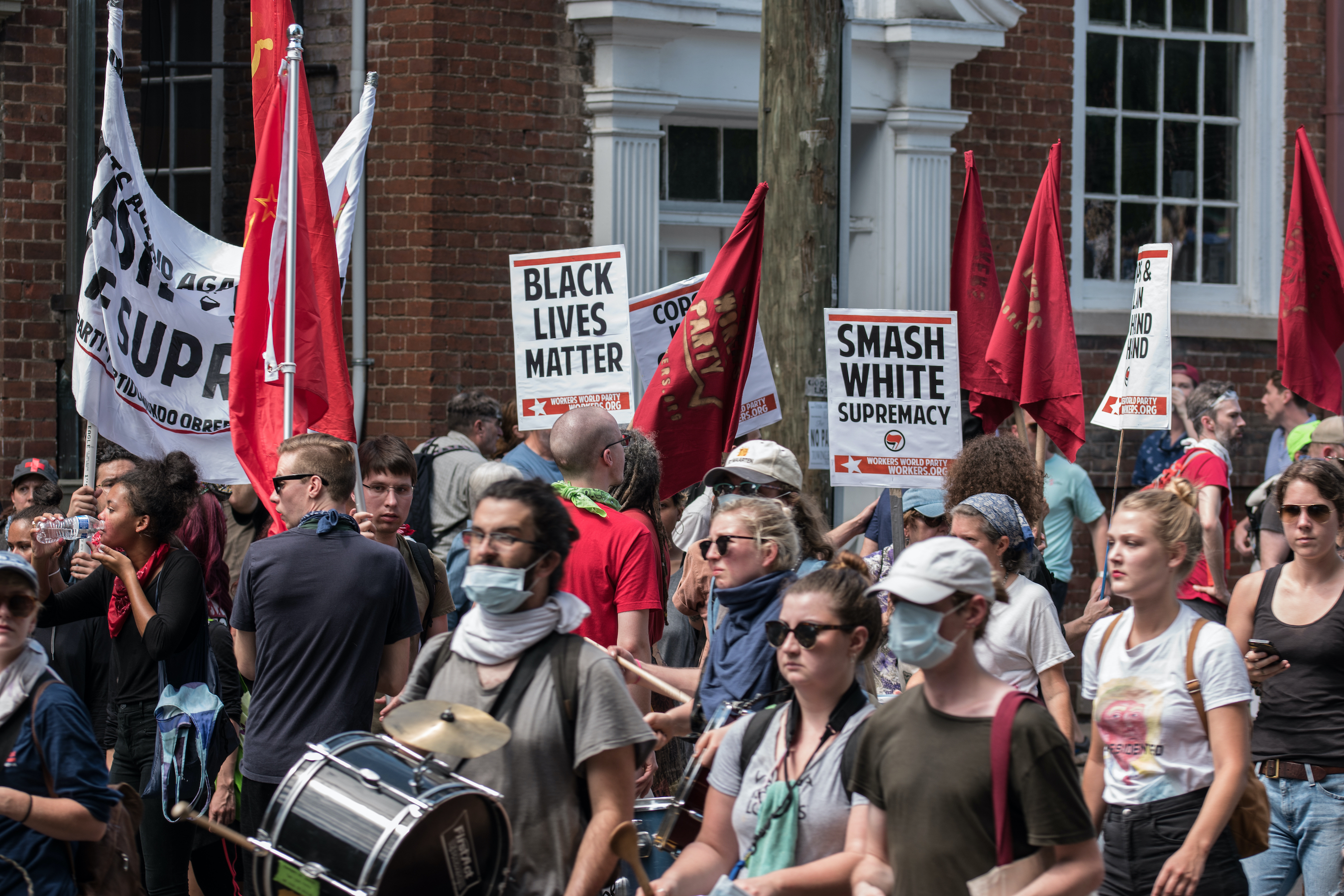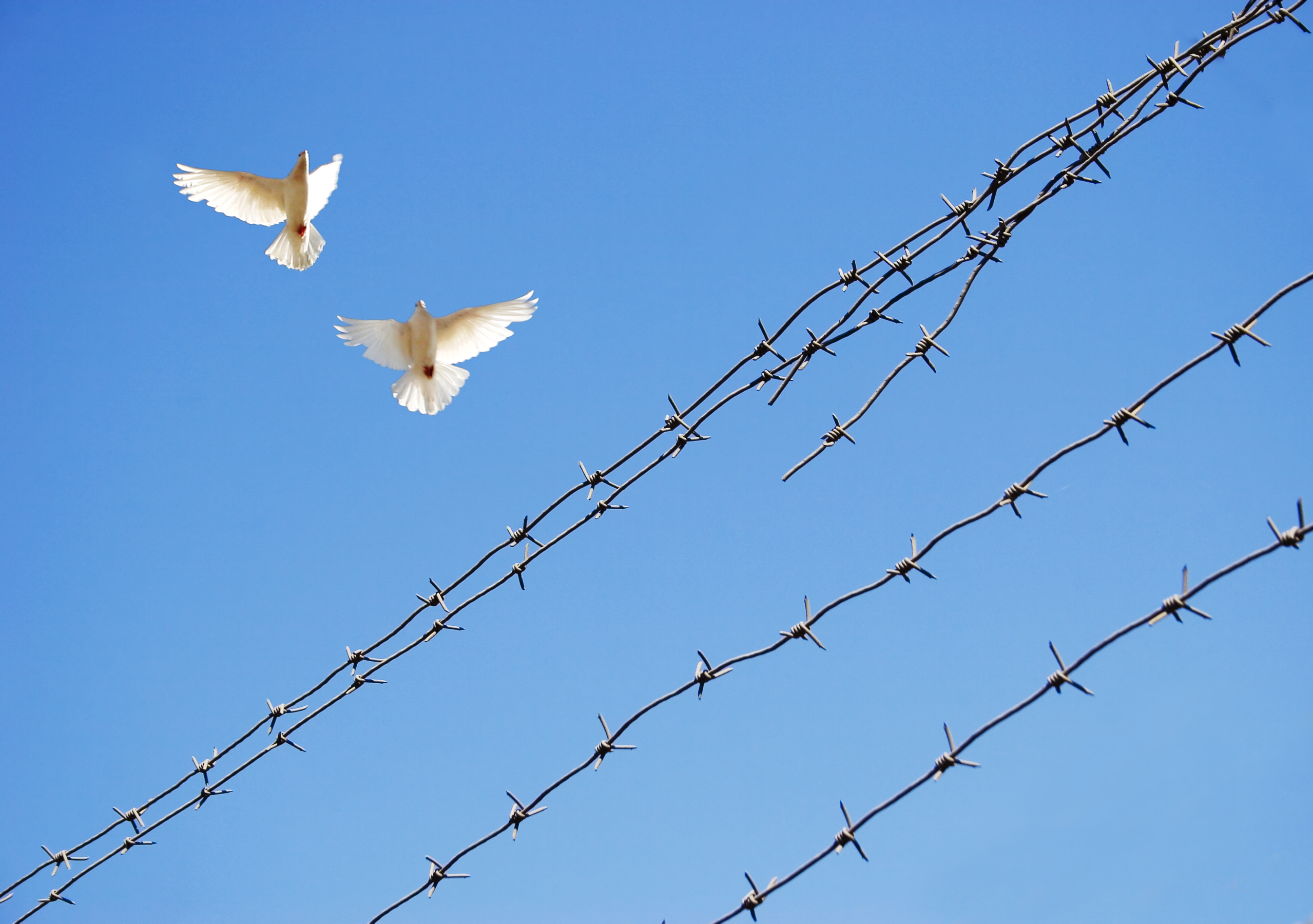Civilisation in the 21st century
One of the most striking features of international politics in the 21st century has been the widespread calls to protect civilisation in danger. We certainly have seen this in the aftermath of 9/11 when a number of American presidents have invoked this idea of the fight for civilisation, often connecting it with the war on terrorism.
After the bombings in Paris in 2015, then French Prime Minister Manuel Valls described the confrontation between the French State and ISIS as a “battle of civilisation”. On the other side of Europe, figures like Viktor Orbán (and he’s certainly not the only one) have criticised the influx of refugees from Syria and Libya as an affront to what he calls Europe’s Christian roots and European civilisation.
In recent years, we’ve also witnessed an increase in racist rhetoric around the idea of civilisation, best seen in the episodes of Charlottesville and the killings at the mosque in New Zealand. According to the killer’s online manifesto, these atrocities in New Zealand were carried out in the name of “white civilisation”.
Civilisation has now become a term that’s associated with the radical right. For a range of understandable reasons, others have felt uncomfortable about associating themselves with the term, given its toxic historical baggage. However, we need to think about the concept’s longer history.
The history of the term civilisation
We should recast our attention back to Europe after 1945, when there was a wide open sense in which a range of different actors were thinking about how to build a new Europe in the wake of Nazism and the war.
One reason why historians have been so reluctant to actually look at this is because the term is one we love to hate. After all, civilisation is associated with the unsavoury legacy of 18th century elitism, 19th century war and imperialism, racism and social engineering projects of all kinds. It’s with good reason that we treat that particular legacy with a great deal of scepticism and disdain. Mahatma Gandhi summarised a common perception when he was asked what he thought of Western civilisation: ‘I think it would be a good idea.’
For a long time, the left and those associated with the anti-colonial cause dismiss the term as an unwanted aspect of modern European history. However, it did not die in Auschwitz, and re-emerged as a central metaphor for remaking the continent after 1945. A diverse array of actors and interest groups summoned the concept as a way of talking about the reconstruction of Europe across the political spectrum and across the political divide.
Rethinking civilisation in 1945
What happened in 1945 was a dramatic expansion of the term. While civilisation for many people was associated with war and European expansionism, after 1945 the new mission of civilisation was associated with peace and a new world order. A range of different activists – including churchmen, peopleniks, campaigners against atomic weaponry – vied over the idea of building a new peaceful and progressive Europe that was often linked to leftist causes.
That may come as a surprise to us today because we’ve inherited this idea that the defence of civilisation is a favourite rhetorical device of the conservative or radical right. But during the first two decades after the war, the “re-civilising mission” was also embraced by those on the left. That’s not to say that they were alone – across Europe, conservatives also championed the term as a way of advancing various right-wing political agendas.
For example, the defence of civilisation was used to justify the restoration of Empire for the British, the French, the Belgians and the Dutch, to reconquer lost territories in Africa and Asia in the name of European civilisation. Militant Christians invoked the crisis of civilisation to define and defend their idea of Christian Europe in peril, and to rethink the relationship between the Christian West against what they felt to be the dangers of an atheistic Soviet threat. Nevertheless, a number of liberal and leftist voices challenged these views, and offered alternative interpretations of what modern European civilisation is and could become.
There was a great deal of interest across the political spectrum to build a new Europe from the material and moral ruins of the past. Divisions grew between East and West, around issues of ideology, religion and superpower influence. But there were a surprising number of places in which ideas of civilisation actually bridged the Cold War divide.
A good example was the peace movement – in the 1950s and 1960s, many Europeans demonstrated against atomic warfare on both sides of the Iron Curtain. So this is one case in which people talked about the tenuous fate of planetary civilisation that transcended the Cold War blocs.
Rebuilding Europe
But there were other examples of forging a more progressive material civilisation, which included expanded welfare states, mass housing, public hygiene and health and mass education systems. These ideas on the life chances of ordinary citizens were shared across the Cold War divide, and were seen as vital places of political legitimacy, shared expertise and peaceful competition. The same went for the civilisation of science, based on the prospect of linking science to the mission of peace and social welfare.
Relatedly, the Geneva Conventions in 1949 were predicated on the idea of civilising warfare by protecting civilians in war zones. Despite their ideological wranglings, delegates from the Soviet Union and Western Europe discussed the need to build a new civilisation of international norms across a divided continent, as seen with the Pugwash Conferences of scientific exchange. A number of international institutions, such as the United Nations, UNESCO and the Red Cross, were also involved in these initiatives of cooperation and peaceful cohabitation.
Changing views of civilisation
After 1945, there were some striking developments. One surprise was that Eastern Europe developed an interest in the concept of civilisation. If you look at the writings of Lenin, Trotsky and Stalin, civilisation was mocked and dismissed because of its association with Western imperialism. For them, the Russian Revolution stood for very different values. On occasion, Trotsky and Stalin mentioned the idea of a Bolshevik or socialist civilisation, one founded on the principles of equality and fairness that rejected any Western-style hierarchy of ascending civilisations. But for the most part, it’s not a term that figured much in the Soviet lexicon.
The Soviet language of civilisation did resurface during the Second World War when the Soviet Union sought to forge alliances with the West to fend off what was commonly called the Nazi assault on civilsation, and then again during the Nuremberg Trials as the Soviets justified their presence in putting Nazi criminals on trial. But it was during the southward thrust of the Soviet Union and Eastern Europe into Africa and Asia in the 1960s that the terminology of socialist civilisation really took wing.
A new idea of socialist civilisation
In the era of decolonisation, Eastern Europeans extended a hand to potential partners in Africa and Asia with the idea that socialist civilisation was anti-Western and anti-imperial. They came as white Europeans, but ones determined to build new relationships supposedly based on anti-colonial solidarity and mutual benefit. There was huge Eastern European interest, for example, in African history and archaeology as proof that they were keen to create new bridges of socialist fellowship around African antiquity and cultural heritage. These well-funded and high profile undertakings were taken very seriously, and international organisations like UNESCO came in and supported this affirmation of African civilisation.
African national elites, of course, were leading the effort to champion the cause of African civilisation as a way of marking political independence and national sovereignty, spearheaded by Kwame Nkrumah in Ghana or Léopold Sédar Senghor in Senegal. In this decolonised African world of the 1960s, the advocacy of African civilisation served as an emblem of cultural achievement and international arrival, and Eastern European socialists devoted great energy to forging bonds of fraternity with their African counterparts that linked post-imperial civilisation in Eastern Europe and Africa.
Civilisation may have been the most European of ideologies but it moved from West to East and then to the Global South. And during this migration, it mutated along the way. With strengthening economic, military, political and cultural relations between Europe and Africa, many Africans migrated to Western or Eastern Europe, first as student exchanges, then as labourers. With time, however, this more inclusive dream of pluralistic European civilisation started to bump up against its limits.
What happened in the 1970s and 1980s, in both Western and Eastern Europe, was a reaction against multiculturalism. The influx of foreigners from Africa and Asia prompted calls to protect a majoritarian civilisation against the ethnic others in their midst.
In this sense, the right-wing co-optation of this language is not that old, and is more of a reaction to the wave of immigration during the 1960s and 1970s. It continued apace through the 1980s and has intensified since the fall of the Berlin Wall as the toxic underside of liberal Europe. Whether the more inclusive and progressive history of the term after 1945 will ever return is an open question, but recent widespread discussion of a planetary civilisation in crisis due to the Covid-19 pandemic has suggested new interpretations and understandings for our global moment. But in the meantime, a defensive and xenophobic language of civilisation still haunts a continent that feels itself under threat.


